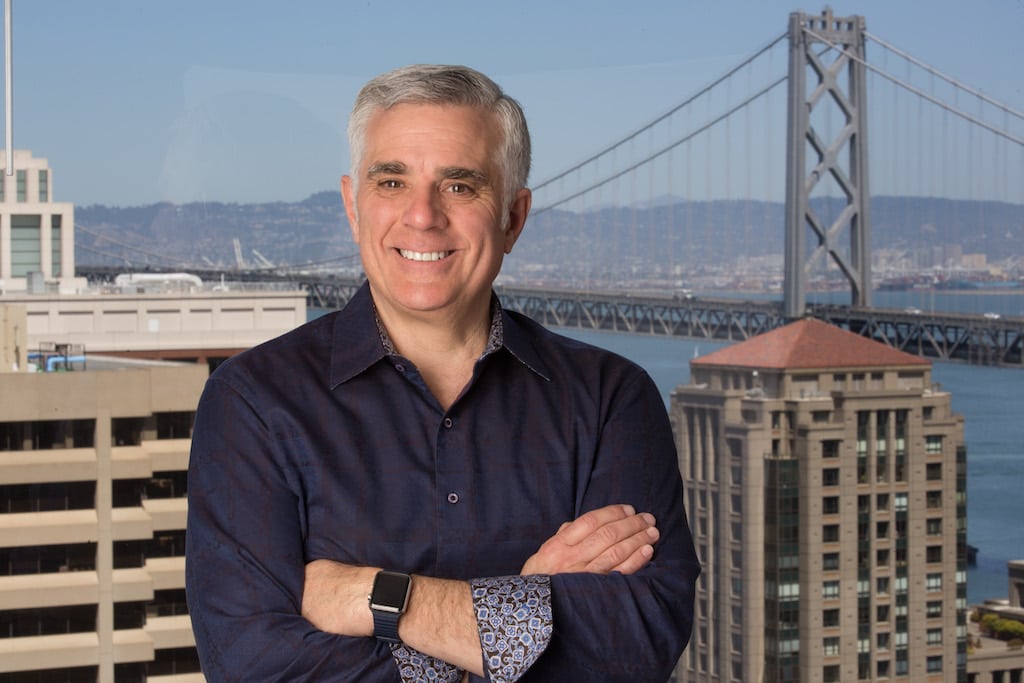Skift Take
With support from Enterprise Holdings, Deem plans on growing and refining its existing products. On the horizon, though, lurks the promise of a new travel platform to help the company evolve in a competitive global corporate travel market.
With the news of Enterprise Holdings acquiring corporate travel veteran Deem, some questions arose about what exactly the deal would mean for one of the more established corporate travel technology companies in North America.
After a period of leadership turnover in 2016, Deem’s future path was anything but clear. The company sold off various pieces of technology in an attempt to refocus and pivot away from perhaps being too big to fail into a company capable of diving deep into travel management and ground transportation.
The deal fell into place as the company was in talks for increased funding last year, according to Deem CEO John Rizzo. Enterprise Holdings, which had made a sizeable equity investment in 2016, decided to go all-in on Deem instead of contributing some more capital. Enterprise was sold on Deem’s corporate travel platform, in addition to their existing work together on the ground transportation side.
“Look, we don’t want to turn Deem into Enterprise; we want Deem to be Deem,” said Rizzo. “And we want Deem to be faster and better. I know we have been around for a long time, but in the last three years, I consider us a new startup because we reset everything and refocused. In a startup environment, you’ve got a limitation of resources, you’ve got some constraints around how much you can hire, or how many people you can put on projects, and how much you can invest.”
Rizzo expects the company to double its staff over the next year, with all the questions about Deem’s viability and role in the sector settled following the acquisition. The plan is that around 65 percent of the new hires will take place in product development, with others being brought on in customer service along with marketing and sales.
In terms of strategy, the company will continue to improve and refine its Work Fource and Ground Fource platforms. Improving elements like hotel search are near-term projects, along with further integrations with various elements of their previous partnerships with Enterprise. Enterprise’s presence in China, which has reached more than 200 cities, is one particular area of focus.
“Enterprise has offices in ninety countries, they have affiliates everywhere,” said Rizzo. “[Not to mention[ this whole thing with National Car and Driver China, a company today we have an investment in that has 55,000 cars in China. We’ve got some scale there. We’re about ready to bring Amadeus online. We haven’t publicly announced that yet, but that’s a project that if you asked the customers at Deem ten years ago what Deem should do, they’d say ‘well, build an Amadeus connection.’ Ten years is a little too long but we finally got there.”
The deal also solved what seems like a crisis of confidence for Deem. Questions about the state of the company were hurting Deem’s presence in the marketplace, and Rizzo hopes that the newfound stability will be attractive to potential clients.
“So now we have situations where we can be engaged with customers and talk with them from a perspective of strength,” said Rizzo. “[If you have] mission critical business travel, you’re a huge company, and you’re gonna make the decision that’s going to last several years, you want to make sure the company standing behind the software is gonna be there to innovate and invest in the platform. Now we certainly can [innovate] at a more aggressive rate.”
In the long-term, Rizzo wants Deem to return to its role as corporate travel innovator with a wider rethink of how a travel platform should operate. The company is eying 2021 or 2022 for a new platform aimed at reflecting the shifts in traveler behavior and the evolution of travel distribution in recent years.
“Often times, a travel management company has a certain set of business requirements that may be consistent with, or inconsistent with, what the traveler needs,” said Rizzo. “And as time goes on, we’ve got more closely aligned with and more knowledgeable about all these details so that we can make products that can actually benefit the traveler, the travel management company, and the travel manager.
“But you can’t really do that unless you’re talking to lots of people, sucking up a lot of data and learning from your mistakes. We’ve made plenty of mistakes from which we can make better decisions. It’s a virtuous cycle if you embrace the mistakes as an opportunity to learn and do better.”
The Daily Newsletter
Our daily coverage of the global travel industry. Written by editors and analysts from across Skift’s brands.
Have a confidential tip for Skift? Get in touch
Photo credit: A photo of Deem CEO John Rizzo. Deem
